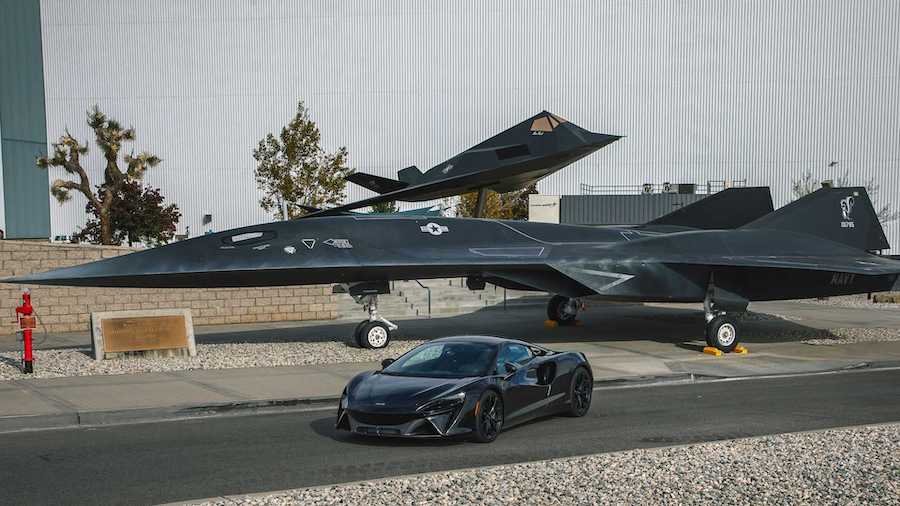McLaren, Lockheed Will Collaborate On "Futuristic" Supercar Design

For car enthusiasts who also love fast jets, this could be the collaboration you've been dreaming of. McLaren Automotive is already known for building some of the fastest cars on the planet. Now, the UK company is teaming up with Lockheed Martin Skunk Works to suss out new ways of designing supercars of the future.
Anyone with a modicum of aviation knowledge needs no introduction to the Skunk Works. For others, you've likely heard of the F-22 Raptor, F-35 Lightning II, F-117 Stealth Fighter, U-2 spy plane, or the SR-71 Blackbird. If those aircraft names and designations are still a tad fuzzy, you might recognize the sleek jet in the photo gallery below, posing with a new McLaren Artura. That's the Darkstar, a conceptual hypersonic jet designed by Lockheed's Skunk Works that appeared in the opening scenes of Top Gun: Maverick – the highest-grossing movie of 2022 at $1.48 billion.
What exactly does this collaboration entail? McLaren doesn't offer details, which ironically falls right in step with the plethora of secret projects handled by the Skunk Works over the course of several decades. The focus of this partnership is to morph the aerospace company's design software into something that can be applied to supercars, with an eye toward high-speed automotive systems. Considering the SR-71 Blackbird still holds the world absolute speed record for an air-breathing combustion machine at 2,193 mph (Mach 3.3), we're wondering what kind of insane supercar McLaren has in mind.
"McLaren is a pioneering company that has always pushed boundaries and sought out new innovative and disruptive solutions to making the ultimate supercars," said McLaren Chief Technical Officer Darren Goddard. "Working alongside an iconic company such as Lockheed Martin Skunk Works®, renowned for their visionary focus on the future, is a natural fit. We hope this is the start of a longer and deeper collaboration that will benefit our customers in the long term."
Of course, McLaren is no stranger to speed records. In 1998 – eight years after the SR-71 Blackbird was retired from service – Andy Wallace drove the McLaren F1 to an average top speed of 240.1 mph. It exceeded the F1's previous mark of 231 mph to become the world's fastest production car, a record that stood for several years until the Bugatti Veyron's 253.8-mph run in 2005. The F1 is still among the fastest production vehicles in the world, 30 years after its debut.
Looking for more automotive superstars? Check out the special Rambling About Cars episode focusing on the 2022 Motor1.com Star Awards, available below.
